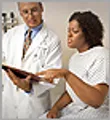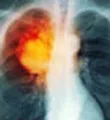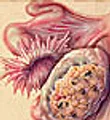WebMD Health News Reviewed byBrunilda Nazario, MD

Dec. 12, 2012 -- Heavy coffee drinkers -- those who drink more than four cups a day -- may cut their risk of dying from cancers of the mouth and throat by nearly half, according to new research.
"We examined coffee drinking habits in nearly 1 million men and women," says Janet Hildebrand, MPH, an epidemiologist with the American Cancer Society."Those who reported drinking at least four cups per day of caffeinated coffee incurred about half the risk of dying from mouth and throat cancers compared to people who did not drink caffeinated coffee daily or only drank it occasionally."
That link held even when the researchers took into account smoking habits and alcohol use.
Smoking and alcohol use are among the strongest risk factors for oral cancers.
About 35,000 new cases of oral cancers are expected in the U.S. this year, with 6,800 deaths, according to the American Cancer Society. The new study is published online in the American Journal of Epidemiology.
Previous research by others has linked drinking more than four cups of coffee a day to about the same risk reduction in getting a diagnosis of oral cancer.
Top Cancer-Fighting Foods
Coffee & Oral Cancers: Study DetailsHildebrand's team evaluated more than 968,000 men and women enrolled in the Cancer Prevention Study II. It began in 1982 and is overseen by the American Cancer Society.
At the start of the study, all men and women were free of cancer. During the 26-year follow up, 868 deaths from oral or throat cancers occurred.
The researchers evaluated the coffee- and tea-drinking habits of the men and women. They found the link between coffee and a reduced risk of dying from oral cancers.
More than 97% of the men and women drank either coffee or tea. More than 60% said they drank at least a cup a day of caffeinated coffee.
Among those who drank regularly, most had three cups a day.
The risk reduction of nearly half was similar for those who drank four, five, or six cups daily. Beyond seven cups, Hildebrand says, there weren't enough people to gauge the effect on risk accurately.
Hildebrand found only a suggestion of a link between those who drank more than two cups of decaf daily.
No benefit was found for tea drinkers.
Why Coffee May Protect"We really don't clearly know the mechanism," Hildebrand says. "But we do know that coffee contains hundreds of biologically active compounds."
Many of them, she says, are now known to have anti-cancer properties.
The researchers can't be sure in this study whether the coffee lowered the risk of getting the cancers or improved the odds of survival once cancer occurred. The study only looked at deaths, not the diagnosis.
"We're not recommending people start to drink coffee or that people increase their coffee [intake] for cancer prevention," Hildebrand says. "Much more epidemiological and scientific and clinical evidence would be needed to support such a recommendation."
Coffee & Oral Cancers: PerspectiveThe new findings are ''fascinating and remarkable," says Joel Epstein, DMD. He is director of oral medicine at the City of Hope Comprehensive Cancer Center, located outside Los Angeles. He reviewed the study findings.
"It seems like there is a significant theme,'' he says, citing several other studies finding a lower risk of various cancers in coffee drinkers. "They are large studies," he says, usually funded by reputable organizations such as the American Cancer Society.
By and large, the studies are coming up with the same findings, he says, even though the researchers study different populations and different cancers. That's a good sign, he says.
View Article Sources
SOURCES:
Janet Hildebrand, MPH, epidemiologist, American Cancer Society, Atlanta.
Joel Epstein, DMD, director of oral medicine and adjunct professor of otolaryngology and head and neck surgery, City of Hope Comprehensive Cancer Center, Duarte, Calif.
Hildebrand, J. American Journal of Epidemiology, published online Dec. 9, 2012.
© 2012 WebMD, LLC. All rights reserved. #url_reference {display: none};#url_reference { display: block; line-height: 150%; margin-bottom: 10px; }#logo_rdr img { visibility: visible; }.titleBar_rdr .titleBarMiddle_fmt { padding-top: 1.5em !important;} Top Picks 15 Cancer Symptoms Women Ignore Sleep Problems and Cancer Cancer: Should You See a Specialist? 8 Ways to Lower Your Cancer Risk Chemotherapy Side Effects See What Skin Cancer Looks Like Cancer Health Center Cancer Health Center Bladder Cancer Brain Cancer Breast Cancer Cervical Cancer Colorectal Cancer Lung Cancer Melanoma Non-Hodgkin's Lymphoma Ovarian Cancer Pancreatic Cancer Prostate Cancer See what others are asking aboutVisit WebMD Answers
Related To Cancer Acute Lymphoblastic Leukemia Cancer Clinical Trials Cancer Reference Childhood Leukemia Chronic Myelogenous Leukemia Kidney Cancer Leukemia Living Healthy Malignant Glioma Non-Melanoma Skin Cancer Palliative Care Questions and Answers Uterine (Endometrial) Cancer Today in Cancer Blog How to Build a Support Team
Blog How to Build a Support Team  SLIDESHOW Eating These Cancer- Fighting Foods?
SLIDESHOW Eating These Cancer- Fighting Foods?  SLIDESHOW See What Skin Cancer Looks Like
SLIDESHOW See What Skin Cancer Looks Like  SLIDESHOW 13 Best Quit-Smoking Tips Ever
SLIDESHOW 13 Best Quit-Smoking Tips Ever  Blog 'I'll Be Bald Or Fat But Not Both'
Blog 'I'll Be Bald Or Fat But Not Both'  HEALTH CHECK What Is Your Cancer Risk?
HEALTH CHECK What Is Your Cancer Risk?  Video Colorectal Cancer Treatment Advances
Video Colorectal Cancer Treatment Advances  SLIDESHOW Breast Cancer: Symptoms, Treatment
SLIDESHOW Breast Cancer: Symptoms, Treatment  SLIDESHOW All About Prostate Cancer
SLIDESHOW All About Prostate Cancer  SLIDESHOW A Visual Guide to Lung Cancer
SLIDESHOW A Visual Guide to Lung Cancer  SLIDESHOW Ovarian Cancer Explained
SLIDESHOW Ovarian Cancer Explained  VIDEO Life After a Brain Tumor Subscribe to WebMD Newsletters WebMD Daily Women's Health Men's Health Weight Loss Wisdom I have read and agree to WebMD's Privacy Policy. Submit Sign up for more topics! WebMD Special Sections Coping With Chronic Myelogenous Leukemia Stem Cell Transplants for Blood Cancers Understanding Cancer and Bone Metastasis Health Solutions From Our Sponsors Vaccine Questions? Low Testosterone? Diabetes Care for Kids Birth Control for Moms Blood Sugar Control Bent Fingers? Diagnosed With Low T? Fibromyalgia & Exercise Depression & Adults Insulin Pump Therapy Vaccines for All Ages Knee Pain Relief Itchy, Scaly Skin? Hearing Aid Alternative Relapsing MS Help In-depth coverage: Psoriasis Treatment on Target?|Healthy Mouth Help|RA Assessment|Living Healthy Guide|Family & Pregnancy Toolbox|Check Your Heartburn Symptoms Find us on:URAC: Accredited Health Web Site
VIDEO Life After a Brain Tumor Subscribe to WebMD Newsletters WebMD Daily Women's Health Men's Health Weight Loss Wisdom I have read and agree to WebMD's Privacy Policy. Submit Sign up for more topics! WebMD Special Sections Coping With Chronic Myelogenous Leukemia Stem Cell Transplants for Blood Cancers Understanding Cancer and Bone Metastasis Health Solutions From Our Sponsors Vaccine Questions? Low Testosterone? Diabetes Care for Kids Birth Control for Moms Blood Sugar Control Bent Fingers? Diagnosed With Low T? Fibromyalgia & Exercise Depression & Adults Insulin Pump Therapy Vaccines for All Ages Knee Pain Relief Itchy, Scaly Skin? Hearing Aid Alternative Relapsing MS Help In-depth coverage: Psoriasis Treatment on Target?|Healthy Mouth Help|RA Assessment|Living Healthy Guide|Family & Pregnancy Toolbox|Check Your Heartburn Symptoms Find us on:URAC: Accredited Health Web Site©2005-2012 WebMD, LLC. All rights reserved.
WebMD does not provide medical advice, diagnosis or treatment. See additional information.
View the Original article




1 comments:
Cancer is the uncontrolled growth of abnormal cells in the body. Cancerous cells are also called malignant cells. These cells do not die and multiply which results in formation of tumor causing difficulty in different organ functionality. There are more then 200 types of cancer which a human body can get affected. Cancer can be treated well if diagnosed in earlier stages. Treatment of cancer can be radiation, chemotherapy and immunotherapy.
Post a Comment